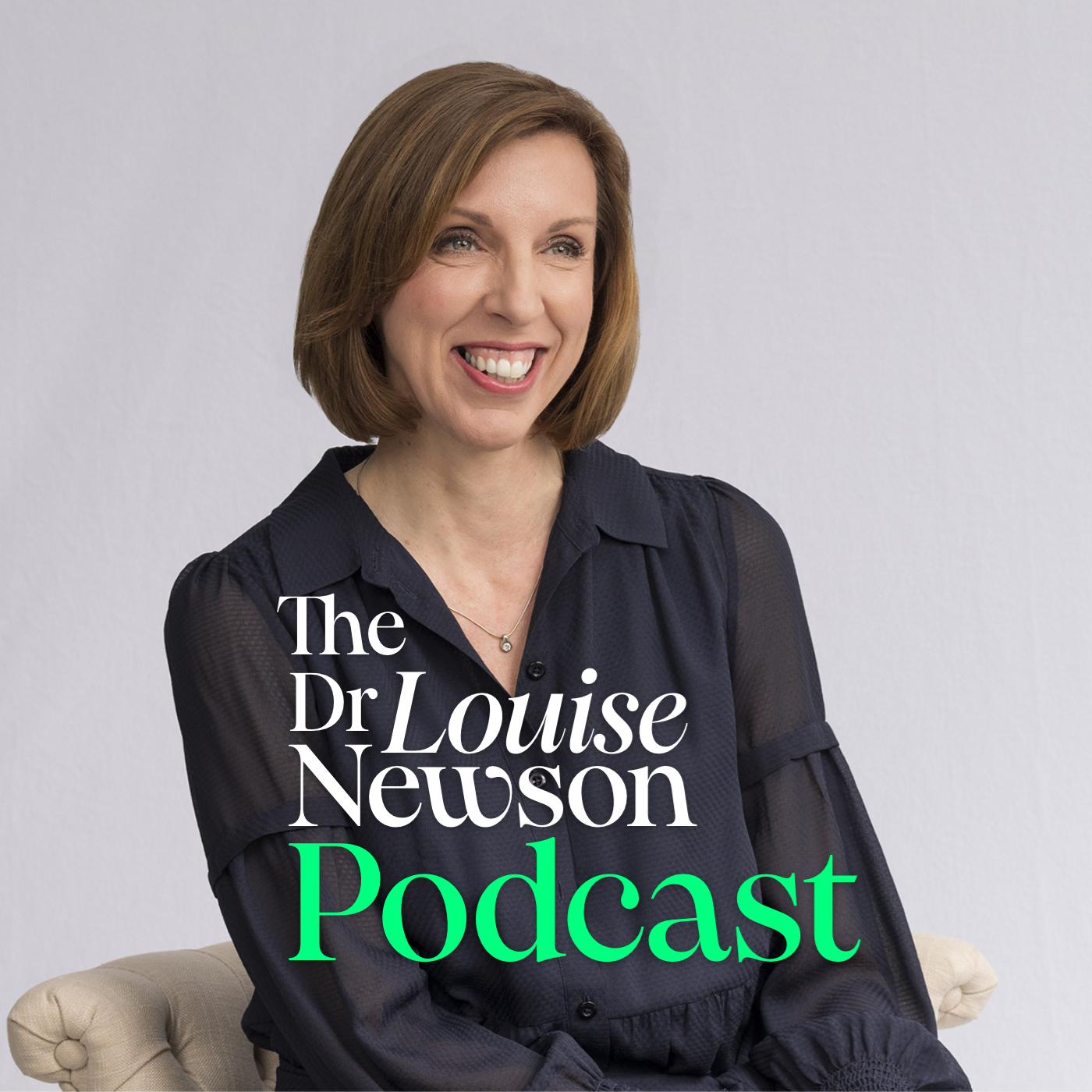
8.3M
Downloads
307
Episodes
Dr Louise Newson is an award-winning physician, respected women’s hormone specialist, educator, and author committed to increasing awareness and knowledge of perimenopause, menopause, and lifelong hormone health. Each week, Louise dives into the newest research, treatments and hot topic issues, providing accessible, evidence-based information to empower your future health. Joined by fellow experts and special guests, with answers to your burning questions, Louise explores how hormones impact every aspect of our lives. Described as the “medic who kickstarted the menopause revolution”, Louise aims to empower a generation of women to have a greater understanding, choice and control over their treatment, bodies, minds and future health through their hormones. She is the creator of the award-winning free balance app, a Sunday Times bestselling author and the founder of the Newson Health clinic. With over three decades of clinical experience, Louise is a member of the Royal College of Physicians, a Fellow of the Royal College of GPs, a Visiting Fellow at Cambridge, a regular contributor to academic journals including the Lancet and the British Journal of General Practice, and has been awarded an honorary Doctorate of Health from Bradford University. DISCLAIMER: The information provided in this podcast is for informational purposes only and is not intended as a substitute for professional medical advice, diagnosis, or treatment. Always seek the advice of your physician or other qualified health providers with any questions you may have regarding a medical condition. The views expressed by guests are their own and do not necessarily reflect the views of Dr Louise Newson or the Newson Health Group.
Episodes

Tuesday Nov 09, 2021
Tuesday Nov 09, 2021
Menopause specialist, Dr Sarah Ball, makes a record 4th appearance on the Dr Louise Newson podcast this week, to talk about an important group of women that often feel marginalised when it comes to menopause care and treatment. One in seven women will experience breast cancer, and many more of us have a close relative who has had breast cancer. Thankfully, thousands more women are living longer after breast cancer, but this often means living with the menopause and symptoms of a lack of hormones.
The experts discuss the risk factors of developing breast cancer and the complexities of the association between hormones and breast cancer. Dr Sarah Ball has researched the experiences of menopausal women having breast cancer treatment and her findings reveal women are having to endure menopausal symptoms for an average of 7 years before seeking, or being given, help and treatment, and sadly, only 10% of the women surveyed felt they were involved in decisions about their care.
Dr Ball and Dr Newson are both passionate about helping women after breast cancer and believe it is essential that these women are listened to, that healthcare professionals discuss in full the treatment options for their menopausal symptoms, and that women feel empowered to make a decision that’s right for them, at that time, being aware of all the relevant information.
Sarah’s 3 tips for women after breast cancer:
- Don’t feel guilty for how you feel about your menopause, you’re not complaining, or moaning or being ‘weak’. It’s really important that your symptoms are addressed. You are your whole body, not just your breasts. Don’t lose sight of the health of your heart, your bones, your skin, your sex life, your mental health and brainpower – these are important too.
- Symptoms relating to your vagina, vulva and urinary function are treatable by using vaginal estrogen. This is safe to use after breast cancer and is not absorbed by the whole body in the same way as HRT. You can tackle these symptoms successfully, even if you feel you do not want to take HRT.
- Understand you do have a choice. Guidelines recommend you should be listened to and have a say in decisions about treatments. Tell your healthcare professionals what is most important to you in terms of living your life, treating your menopausal symptoms, and managing the risk of cancer returning.
Follow Dr Sarah Ball on Instagram @drsarahmollyball and Twitter @sarahball14
Making decisions around your cancer treatment and menopause is often a complicated and overwhelming process. There is a new factsheet on balance website about making informed decisions about cancer treatments here, and a personal story written by the partner of a woman having worsening menopause symptoms after breast cancer treatment here.

Comments (0)
To leave or reply to comments, please download free Podbean or
No Comments
To leave or reply to comments,
please download free Podbean App.